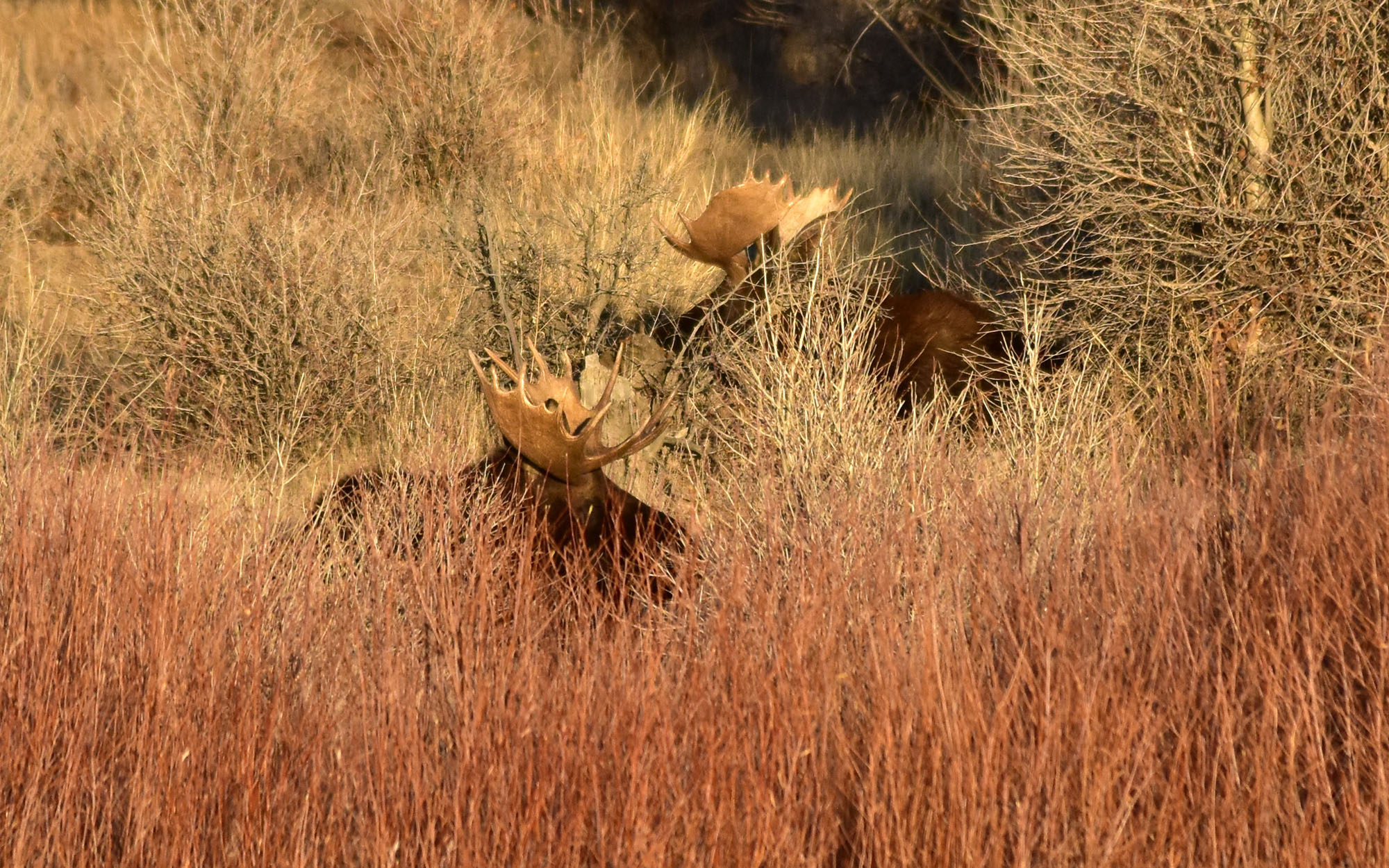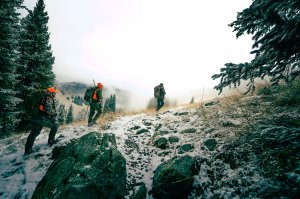When Nevada big game tag applications opened at 8:00 a.m. sharp on Monday morning, the menu of offerings looked a little different than in the past. That’s because this year, the Nevada Department of Wildlife is planning its first-ever moose hunt. Before the application period closes on May 8, some 70,000 licensed resident hunters will have the chance to apply for one of up to three any-legal-weapon bull moose tags. (There could be fewer than three, as wildlife managers haven’t landed on the final figure yet, the Associated Press reports.)
If “moose” and “Nevada” don’t quite match up in your head, you aren’t alone. Known for their obsession with aquatic vegetation, dense forests, and cold weather, the biggest cervid in North America doesn’t really sound like a good candidate for survival in the Silver State. And yet, wildlife biologists with the NDOW have estimated that roughly 100 moose live in northeastern Nevada, an area with surprisingly dense and robust moose habitat. Elko and Humboldt counties are particularly prime areas that have had plenty of moose sightings in recent years.
In 2022, NDOW officials were thrilled to announce that moose had self-established a viable population in parts of Nevada, rather than requiring agency resources and often-controversial discussions about species reintroduction to make it happen. In fact, with ongoing drought and a warming climate in much of Nevada, moose probably wouldn’t have been a candidate for long-term reintroduction efforts in the first place, and some groups question how long the species will remain in Nevada, according to the AP.

But the population’s demographics are also a bit off-kilter for prime reproductive success and calf recruitment, Nevada Wildlife Federation executive director Russell Kuhlman tells Outdoor Life. In some areas, bulls significantly outnumber cows, which can stress cows and their accompanying calves to an unhealthy point during the rut. So for optimal species success, NDOW is calling on hunters to make a (very small) course correction.
“There has been some pushback from some environmental groups on the hunt, but I think this is a perfect success story for the North American model of wildlife conservation,” Kuhlman says. “Hunting is very much a tool within that model, and making sure we have a balanced herd and the correct bull-to-cow ratio is the perfect example of how the North American model can work. These are very big animals, and multiple bulls chasing one cow during the rut puts a lot of stress on that cow, and any young she had from years previously. So it will hopefully lessen the stress these cows deal with, from being chased by, say, five bulls down to two.”
Kuhlman also points out that even though just a few $120 tags will sell, application fees for the hunt also support NDOW’s continued work to manage both game and non-game species of wildlife. Roughly 40,000 resident hunters apply for sheep, goat, and bear tags every year, Kuhlman says. If those same hunters take their chances on drawing a moose tag, the $15 to $30 they’ll each pay in application fees will add up to hundreds of thousands of dollars in conservation funding.
Read Next: Persistence Pays When Hunting Moose
“The number of people who will apply for that tag, that will be money in NDOW coffers,” Kuhlman says. “This is going to be a very good way to fund continued management.”
Nevada’s main draw results will come out on May 17, and the second draw results will come out on June 21.


